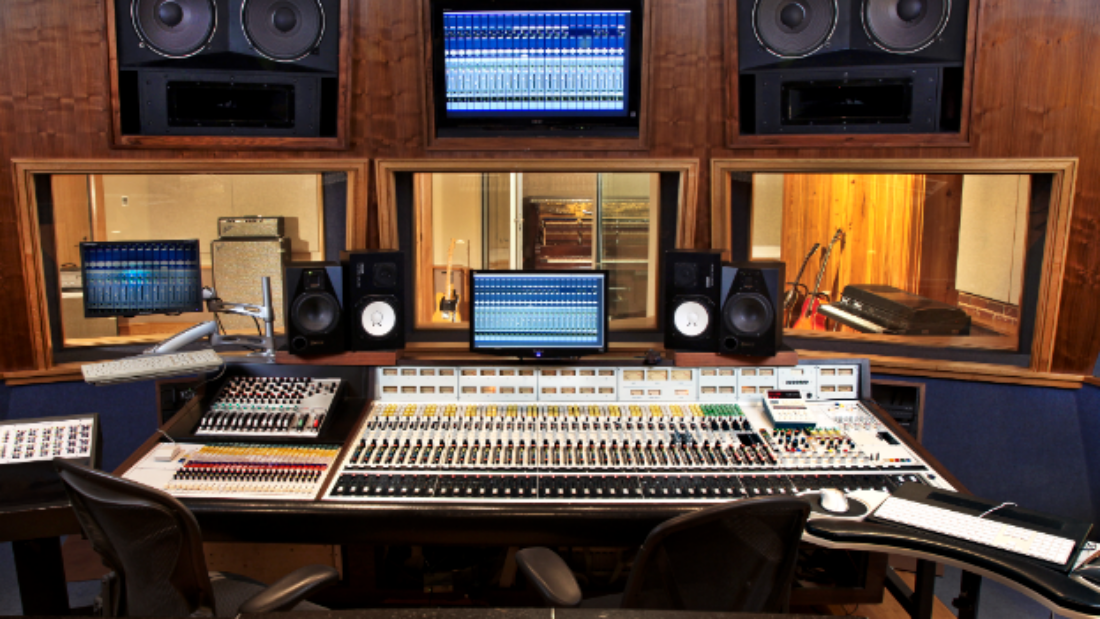|
Getting your Trinity Audio player ready...
|
What do the experts say about recording studios? If you want to get into music production, you’ll probably need to invest some money in a studio. But what exactly is a recording studio? How does it differ from other types of audio equipment? Is it worth investing thousands of dollars? Or would a cheaper option suffice?
The term ‘recording’ refers to the process of capturing sound waves onto a medium such as vinyl or CD. Many musicians record their songs using a home studio setup. This usually involves a computer running software applications along with various pieces of hardware.
While a professional recording studio will cost hundreds of thousands of dollars, you don’t necessarily need to spend that much. In this article, we explore what a recording studio is and more.
What is a Recording Studio?
A recording studio is used for recording live instruments. It’s an enclosed space where musicians can play their instruments while being captured by microphones. The goal is to capture the best possible quality of sound.
You may be wondering why there are so many different terms for recording studios. One reason could be that they were first invented back in the days when people recorded on tape. The tape has its distinct qualities:
– Tapes have low resolution but high fidelity (if you’ve ever seen Michael Jackson’s Thriller video, he uses tapes).
– They are cheap, which makes them ideal for amateur use.
– They are small, making them easy to carry around.
– And finally, they’re relatively easy to record on, compared to hard disks. Hard disks are what most recording computers use today. Here are some things you should know before buying your first recording studio. 
Things You Need To Know Before Buying a Recording Studio
1) A good recording studio has a lot of monitors.
Most professional recording studios have at least 8 speakers. These speakers help to simulate how the final product sounds when played out loud. For example, if you listen to a song through headphones, the experience may not be as immersive or realistic as if you listened to a song through large speakers.
2) You also need a mixing board.
A mixing board is essentially a piece of equipment that helps to combine multiple tracks. By combining all of the parts of a song, the producer can create one cohesive track. Because of this, having a mixing board is essential to any serious musician.
3) You’ll also need headphones and a microphone.
An instrument such as a guitar requires a mic to pick up the sound. While you can certainly buy these items separately, having everything in one place is convenient. Plus, they look great together!
4) Finally, there’s the computer itself.
Modern recording studios come equipped with powerful computers. These computers make it easier to edit, mix, and produce music. Some even feature built-in graphic displays, allowing producers to monitor the sound during recording sessions.
Recording Studios: Types of Recording Studios.
There are two main types of recording studios. First, there are dedicated recording studios. Second, there are “home studios.” The difference between them lies in who owns the facility.
If you’re looking for a recording studio, you might find yourself asking whether a home studio is sufficient. After all, professional studios tend to cost tens of thousands of dollars – and that includes rent, utilities, repairs, etc.
However, you shouldn’t let the price stop you from getting started. As long as you’re willing to invest the time necessary for improvement, a home studio will do just fine. Plus, if you’re not ready yet to turn your garage into a recording studio, then you can always buy a pre-existing studio instead.
How to Decide Between Home and Dedicated Recording Studios
The next thing you want to consider is whether to go with a home studio or a dedicated recording studio. This decision comes down to cost. If you happen to already own the property where you plan to build your recording studio, you won’t incur additional costs besides renting or hiring someone to install the studio. On the other hand, if you don’t already own the space, building a studio could end up costing hundreds of thousands of dollars.
The key issue here is whether you think you will use this studio often enough to justify the investment. Owning a recording studio can indeed increase the value of your home. However, if you aren’t planning to use the studio regularly, you probably wouldn’t benefit much from doing so anyway.
In addition to deciding between a home and dedicated recording studios, another important consideration is your budget. There’s no point in spending more money than you can afford. So, while you might feel inspired to spend $100,000 on a recording studio, keep in mind that you may be better off saving $10,000 first.
The Bottom Line.
Finally, when choosing which type of studio is right for you, you should be prepared to put in some work. Don’t expect to become an overnight success. Instead, you should focus on honing your craft before expecting to profit from it at that moment.

